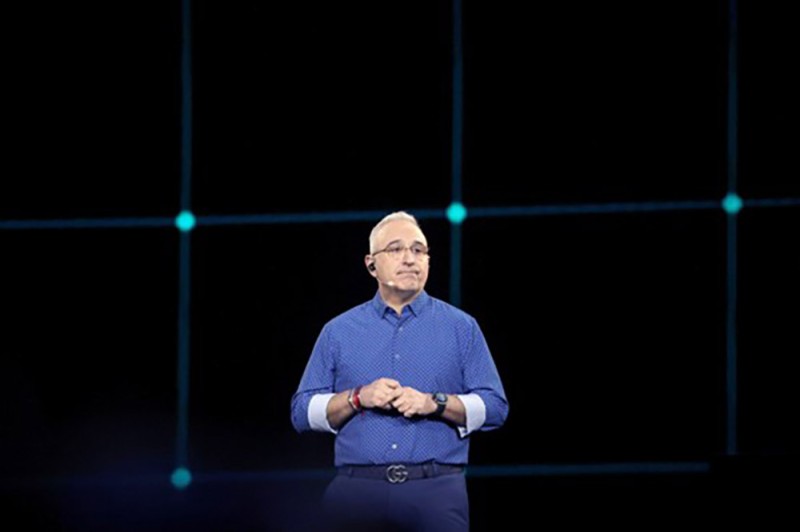
自4月有报道称激进投资者集团埃利奥特管理公司(Elliott Management)购入慧与价值15亿美元的股份以来,双方未作任何公开回应。
这笔投资对慧与及其首席执行官安东尼奥·内里而言至关重要。据路透社报道,此前有14位首席执行官在埃利奥特购入其所在公司股份并要求与董事会谈判后,被迫离职。
内里的职位岌岌可危吗?《财富》杂志已向两家公司寻求置评,但双方均拒绝公开发表意见。
然而,其他消息人士指出,有一些显而易见的线索,可从中看出埃利奥特可能对慧与采取何种行动。
第一点:提升执行力。第一季度,慧与在库存成本核算上出现失误,导致公司股价单日暴跌近16%,公司市值蒸发逾30亿美元。
第二点:提高效率(相对于同行)。慧与每名员工创造的收入仅为49.4万美元,而思科(Cisco)为59.5万美元,戴尔(Dell)为88.5万美元。
一种可能的选项是让内里卸任首席执行官之职,或是促使慧与那些任职时间较长的董事会成员离任。内里担任首席执行官已有七年之久;慧与12名董事会成员中,有6人任职时长已达十年甚至更久。
不过,埃利奥特倾向于规避代理权之争。与之相反,慧与可以为埃利奥特提供一个董事会席位,并就公司转型战略与对方达成共识。
慧与有必要采取这样的举措。自2018年至今,慧与股价虽上涨了48%,每股略高于21美元,然而同期标准普尔500指数却飙升了135%。对于一家本应从人工智能热潮中获得丰厚收益的科技公司而言,这样的表现实在惨淡。——吉姆·爱德华兹
福特首席执行官:人工智能将淘汰半数白领岗位
福特(Ford)首席执行官吉姆·法利(Jim Farley)近日成为最新一位就人工智能对员工影响发出警告的企业高管。
在上周的阿斯彭思想节上,他强调了“基本经济”的重要性——他将其定义为所有涉及运输、建造或维修的工作——同时指出蓝领技术工种长期遭到忽视。
法利解释称,尽管该车企已加大培训投入,但美国在职业培训方面投入不足,且培训内容更契合20世纪50年代的需求,而非面向2050年代,导致蓝领生产力下降。
与此同时,对熟练技工的需求预计将大幅增长,甚至人工智能热潮也需要工人来建造和维护提供所需算力的设施。
他补充道,当下技术工人短缺问题已然十分严峻,估计工厂技术工人缺口达60万,建筑业技术工人缺口也接近50万。
“实现美国梦的路径绝非只有一条,然而我们整个教育体系都聚焦于四年制大学教育,”法利说,“自2019年以来,科技公司入门级员工的招聘量下降了50%。我们当真期望所有孩子都走这条路吗?”
他指出,美国亟需转变思维方式,原因是“人工智能将取代美国半数白领工作”。——杰森·马(*)
译者:中慧言-王芳
自4月有报道称激进投资者集团埃利奥特管理公司(Elliott Management)购入慧与价值15亿美元的股份以来,双方未作任何公开回应。
这笔投资对慧与及其首席执行官安东尼奥·内里而言至关重要。据路透社报道,此前有14位首席执行官在埃利奥特购入其所在公司股份并要求与董事会谈判后,被迫离职。
内里的职位岌岌可危吗?《财富》杂志已向两家公司寻求置评,但双方均拒绝公开发表意见。
然而,其他消息人士指出,有一些显而易见的线索,可从中看出埃利奥特可能对慧与采取何种行动。
第一点:提升执行力。第一季度,慧与在库存成本核算上出现失误,导致公司股价单日暴跌近16%,公司市值蒸发逾30亿美元。
第二点:提高效率(相对于同行)。慧与每名员工创造的收入仅为49.4万美元,而思科(Cisco)为59.5万美元,戴尔(Dell)为88.5万美元。
一种可能的选项是让内里卸任首席执行官之职,或是促使慧与那些任职时间较长的董事会成员离任。内里担任首席执行官已有七年之久;慧与12名董事会成员中,有6人任职时长已达十年甚至更久。
不过,埃利奥特倾向于规避代理权之争。与之相反,慧与可以为埃利奥特提供一个董事会席位,并就公司转型战略与对方达成共识。
慧与有必要采取这样的举措。自2018年至今,慧与股价虽上涨了48%,每股略高于21美元,然而同期标准普尔500指数却飙升了135%。对于一家本应从人工智能热潮中获得丰厚收益的科技公司而言,这样的表现实在惨淡。——吉姆·爱德华兹
福特首席执行官:人工智能将淘汰半数白领岗位
福特(Ford)首席执行官吉姆·法利(Jim Farley)近日成为最新一位就人工智能对员工影响发出警告的企业高管。
在上周的阿斯彭思想节上,他强调了“基本经济”的重要性——他将其定义为所有涉及运输、建造或维修的工作——同时指出蓝领技术工种长期遭到忽视。
法利解释称,尽管该车企已加大培训投入,但美国在职业培训方面投入不足,且培训内容更契合20世纪50年代的需求,而非面向2050年代,导致蓝领生产力下降。
与此同时,对熟练技工的需求预计将大幅增长,甚至人工智能热潮也需要工人来建造和维护提供所需算力的设施。
他补充道,当下技术工人短缺问题已然十分严峻,估计工厂技术工人缺口达60万,建筑业技术工人缺口也接近50万。
“实现美国梦的路径绝非只有一条,然而我们整个教育体系都聚焦于四年制大学教育,”法利说,“自2019年以来,科技公司入门级员工的招聘量下降了50%。我们当真期望所有孩子都走这条路吗?”
他指出,美国亟需转变思维方式,原因是“人工智能将取代美国半数白领工作”。——杰森·马(*)
译者:中慧言-王芳
It’s been radio silence since it was reported in April that the activist investor group Elliott Management had taken a $1.5 billion stake in Hewlett Packard Enterprise.
The investment is an acute one for HPE and its CEO, Antonio Neri. Fourteen chief executives have been forced out of their jobs after Elliott took a stake in their companies and demanded talks with their boards, according to Reuters.
Is Neri’s neck on the chopping block? Fortune asked both companies for comment, but neither wanted to talk on the record.
However, other sources pointed to several clues, hiding in plain sight, about what Elliott potentially wants from HPE.
The first: Improve its execution. A Q1 mistake in accounting for the cost of its inventory tanked its stock by nearly 16% in a day and wiped more than $3 billion off HPE’s market cap.
The second: Boost its efficiency relative to peers. HPE generates just $494,000 per employee in revenue; that compares to Cisco’s $595,000 and Dell’s $885,000.
One option is ousting Neri or HPE’s longer-serving board members. Neri has been CEO for seven years; six of HPE’s 12 board members have been there for 10 years or more.
But Elliott prefers to avoid proxy battles. HPE could instead give Elliott a seat on the board and to agree on a strategy to turn the company around.
It needs it. Since 2018, HPE stock has risen 48% to just above $21 per share. The S&P 500, meanwhile, rose 135%. That’s a dismal performance for a tech company that ought to be benefiting mightily from the mania around AI. —Jim Edwards
Ford CEO: AI will wipe out half of white-collar jobs
Ford CEO Jim Farley recently became the latest corporate boss to sound the alarm about artificial intelligence’s impact on workers.
During the Aspen Ideas Festival last week, he highlighted the importance of the “essential economy”—which he defined as everything that gets moved, built or fixed—while saying blue-collar skilled trades have been neglected.
The U.S. spends too little on vocational training, which is also geared more toward 1950 than 2050, contributing to a decline in blue-collar productivity, Farley explained, though the carmaker has been investing in training.
Meanwhile, demand for skilled trades is expected to surge, and even the AI boom will require workers to build and service the facilities that provide all the computing capacity that’s needed.
There’s already a massive shortage of trade workers, he added, estimating a deficit of 600,000 in factories and nearly half a million in construction, for example.
“There’s more than one way to the American dream, but our whole education system is focused on four-year [college] education,” Farley said. “Hiring an entry worker at a tech company has fallen 50% since 2019. Is that really where we want all of our kids to go?”
It’s time for a new mindset in the U.S., he said. Because “artificial intelligence is gonna replace literally half of all white-collar workers in the U.S.” —Jason Ma

